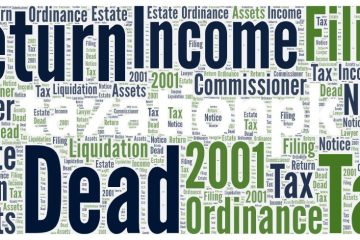Pakistan has a complex taxation system, and the reintroduction of Capital Value Tax (CVT) has caused confusion among taxpayers. CVT is not a new tax as it was previously introduced in 1989 but was abolished from Pakistan’s tax system in 2020. However, it has been reintroduced via the Finance Act 2022. In this article, we will provide a comprehensive guide to Capital Value Tax 2024 in Pakistan, its applicability, and its implications for taxpayers.
What is Capital Value Tax?
Capital Value Tax (CVT) is a tax that is levied on the value of assets, including both movable and immovable properties. The purpose of this tax is to tax the asset class in the economy. The tax is charged at the rate of 1% of the gross value of the property sold where the value of the property is more than 100 million. It is applicable only to resident individuals, and non-residents are not included in this tax.
Applicability of Capital Value Tax:
Capital Value Tax is applicable to both movable and immovable properties. The tax on movable properties was introduced from July 01, 2022, for tax year 2023. However, the tax on foreign assets and motor vehicles was introduced from the current tax year, i.e., 2022.
Capital Value Tax on Movable Properties:
CVT on movable properties is applicable to all assets held within Pakistan. The tax is levied on the sale of assets, and it is charged at the rate of 1% of the gross value of the property sold where the value of the property is more than 100 million. The tax is payable at the time of filing the income tax return.
Capital Value Tax on Foreign Assets:
CVT on foreign assets is applicable to all movable and immovable assets held outside Pakistan. The tax is charged at the rate of 1% of the gross value of the property sold where the value of the property is more than 100 million. The tax is payable at the time of filing the income tax return.
Capital Value Tax on Motor Vehicles:
CVT on motor vehicles is applicable from Tax Year 2023. The tax is applicable to motor vehicles with an engine capacity of 1300cc or more or electric vehicles with a power of more than 50kwh. The rate of tax is 1% for vehicles, and it is collected on the invoice value by the seller in case of local purchase. In case of import of the vehicle, custom authorities will collect the tax.
Implications for Taxpayers:
The reintroduction of CVT Capital Value Tax has significant implications for taxpayers. The tax is applicable to high-value assets, and taxpayers will have to pay 1% of the gross value of the property sold. Taxpayers will need to keep track of their movable and immovable assets, as well as foreign assets, to ensure that they comply with the tax laws. Failure to pay the tax can result in penalties and legal consequences.
Related Article:
- What Do You Know About Capital Value Tax (CVT)?
- A Comprehensive Guide to Capital Value Tax in Pakistan
- A Step By Step Guide for Capital Value Tax in Pakistan for Foreign Assets
Capital Value Tax is a tax on the value of assets, including both movable and immovable properties. The reintroduction of CVT via Finance Act 2022 has caused confusion among taxpayers. The tax is applicable to high-value assets, and taxpayers will need to keep track of their assets to ensure compliance with the tax laws. It is essential to understand the implications of CVT for taxpayers to avoid penalties and legal consequences.








AoA, I have recently purchased an apartment in KPK having covered area of 1800 sq feet (7 marla) with govt assessed value of 8.7M. I have paid CVT of 2% on the property.
I am requesting to please guide me whether CVT is applicable on the property or not ?
Yes, it is applicable and with 2% now. This article is out-dated.
I want to know whether the CVT will be paid by the purchaser or seller of property ?
i have purchased 2021 model 1498cc car, Did CVT applicable on car transfer and is it can be adjusted trhough salary tax